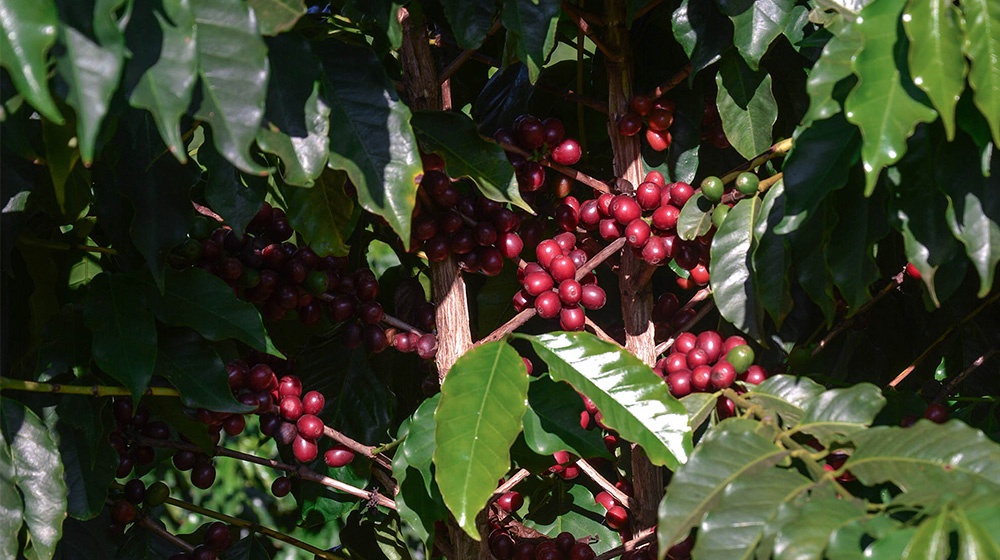
A large producing country, also going strong with specialty coffee.
Brazil is the world’s leading producer and exporter of coffee beans. About a third of all coffee in the world is grown in Brazil. Its surface (it is the largest country in Latin America, the fifth in the world) allows the growth of coffee within various landscapes: from mountains that go over 1600 meters above sea level, to the south-east coast, passing through the plateaus and rainforests. For this reason, Brazil has a huge variety of coffee varieties.
The love story between Brazil and coffee dates back to the 18th century, when the first real plantation was born within the state of Rio de Janeiro, back in 1770. This production was initially aimed exclusively for domestic consumption. Around mid-1800s a real “coffee boom” occured thanks to an exponential growth in demand from the US and Europe. In 1840, the share of exports reached 40% of total productivity, making Brazil the largest coffee producing country in the world. In the 1920s, Brazil almost reached a monopole of the global coffee market, supplying almost 80% of all the coffee in the world.
As you can imagine this is both a success story, but also one of light and dark sides, linked to a long story of slavery and migrations of workers within the plantations, especially by Italians, Spanish and Japanese. The history of coffee in Brazil is the history of a country.
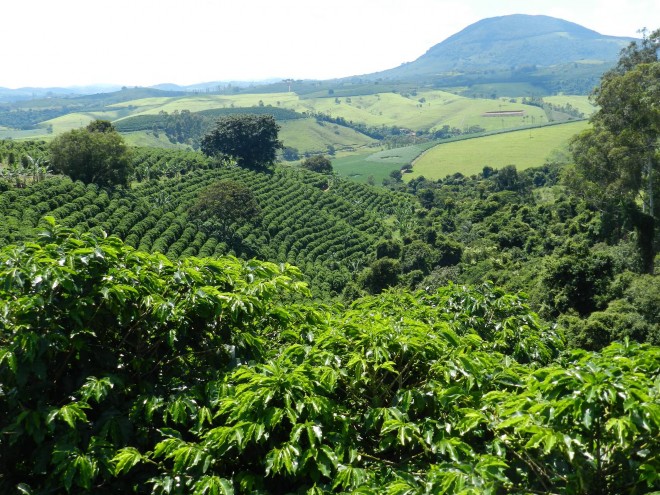
The main Brazilian coffee producing regions
Like in school, when we speak about history we also need to mention the geography. With fourteen major producing regions spread across seven federal states, Brazil’s coffee beans have very different characteristics. Just take a look at the information on the compositions of Mokaflor’s espresso blends to see how the coffee comes from Minas Gerais, São Paulo, Espírito Santo, Bahia, Paraná, Rondonia (in this case, especially the Robusta beans), or even from Rio de Janeiro.
There are many “fazendas” – Brazilian farms – spread throughout the country, farms ranging from small family plantations of less than 10 hectares to large estates of over 2000 hectares, as we will see below. The coffee industry in all its stages employs nearly four million people within Brazil.
About two million hectares of the country are now planted with coffee, of which the vast majority (70% +) is of the Arabica species, even though Brazil is the second largest producer of Robusta in the world after Vietnam. Much of this coffee is aimed for large multinational roasting companies and is generically referred to as “Santos” (from the name of the port from which it’s shipped out of the state of Sao Paulo into the world).
But Brazil also has a history in the specialty coffees, even if sometimes Brazilian 80+ coffees are less known than Central American or African ones.
In this post we went looking for some of the best 80+ specialty coffees around!
The 10 best coffees fazendas in Brazil
1. Fazenda Mariano
São Domingos Mountain – South Minas Gerais
The Fazenda Mariano extends over 80 hectares through the São Domingo mountain range (south of Minas Gerais). The farm was founded in 1909 by Manoel Ignácio Barbosa, great-grandfather of the current owner Manoel Barbosa Junqueira, and has since become one of the best-known farms in the region of Sul de Minas.
The production of coffee ( 100% of which is of the Catuai variety) is the main activity carried out by the farm using only the most modern and sustainable practices.
Particular care is taken to ensure harmony between man and nature: the wastewater from the coffee washing process is recycled and rainwater is stored through a series of collection tanks.
2. Fazenda Pantano
Cerrado
The Fazenda Pantano is a farm that has been managed by Wagner Ferrero since 1990, but carries over a century of tradition. The Ferrero family of Italian immigrants, which are today among the most important and large Specialty coffee growers of the region, own over 900 hectares cultivated by the Ferrero family distributed in the savannahs of the Cerrado biome in Minas Gerais. The company is located in a privileged area, at over 1,200 meters above sea level and offers a very favorable microclimate for Specialties. Fazenda Pantano grows over 240 varieties of coffee: from those usually known for their remarkable cup profiles, such as the Yellow Bourbon, to others that are hard to find elsewhere or under research for further evolution (Acaiá, Catiguá, Ibairi, Topaz, UVA , Caturra, Yellow Catuaí).
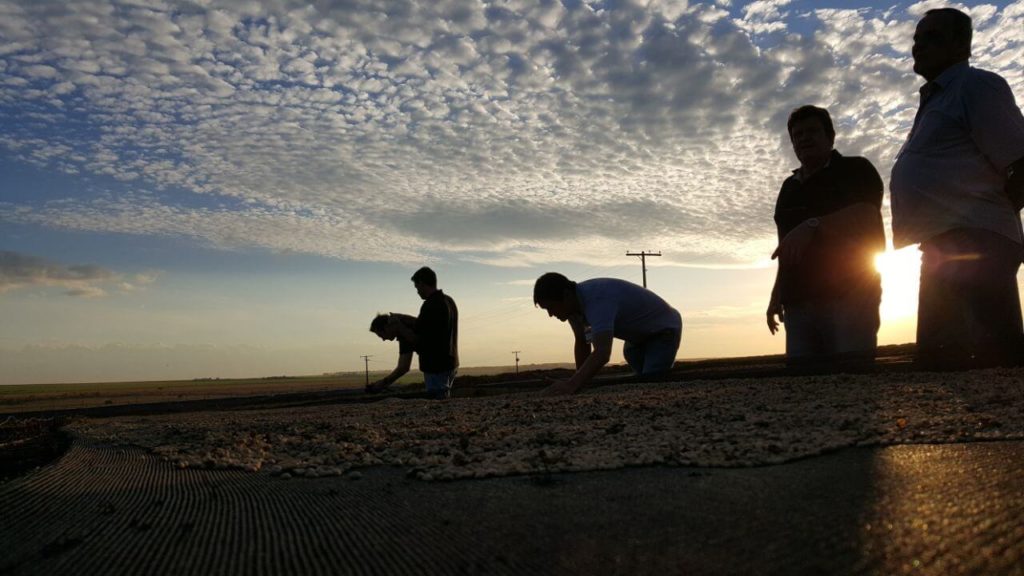
3. Fazenda Rio Brilhante
Cerrado
The name Rio Brilhante pays homage to the river that feeds the coffee plantations. In the 1980s Inácio Carlos Urban acquired his first coffee plantation in the Cerrado Mineiro, a property with an altitude of over 1150 meters above sea level.
Over the years he has become one of the largest agricultural producers in the country and today, together with his children who represent the second generation, he created his own brand: the Rio Brilhante Café de Origin. In the 4 years he has won many awards for productivity and quality, including 3 times the 1st place in the Cerrado Coffee Japanese quality competition, the 2nd place in the Rainforest / Imaflora competition for natural processed coffees and also the 3rd place in the V Cerrado Mineiro Region Award.
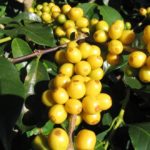 4. Fazenda Rainha
4. Fazenda Rainha
San Paolo Mogiana
Fazenda Rainha extends over an area of 280 hectares of which 200 hectares are planted with the Yellow Bourbon variety. The geographical conditions and the excellent climate make it a privileged place for the production of specialty coffees. The goal of Fazenda Rainha is to support sustainable coffee production together with the conservation of the environment. Fazenda Rainha is a BSCA – Brazilian Specialty Coffee Association – certified farm and has been a finalist in the Cup of Excellence competition for many years.
5. Fazenda Rodomunho
Cerrado
The Carvalho Dias and Ottoni families have been growing coffee in Brazil since 1890 and are a real coffee “institution” in the state of Minas Gerais. The fourth generation of Carvalho Dias and Ottoni coffee farmers continue the family tradition on several farms scattered across the region’s main coffee growing areas, including the Fazenda Rodomunho.
The estate is located in the Alto Paranaíba, the highest part of the Cerrado region of Minas Gerais, approximately 900-1,050 meters above sea level. The fazenda covers 450 hectares, of which 316 are planted with about 1.3 million coffee plants of the Mundo Novo, Catuaí, Acaiá and Icatú varieties. This lot was worked with the natural method. Rodomunho has won numerous awards and their coffees are regular finalists of the Cup of Excellence.
6. Fazenda Passeio
Sul de Minas
Fazenda Passeio is located in the southern part of Minas Gerais, where many specialty coffees are grown (Yellow Catuai, Mundo Novo, Acaia). Led by Adolfo Henrique Vieira Ferreira, the estate focuses not only on producing fine coffees, but also on preserving the surrounding environment. Currently, 130 hectares are dedicated to the production of coffee. The coffee is harvested by hand. All local workers get social support, such as education for their children, workforce training and environmental education.
7. Fazenda Cachoeira de Grama
Mogiana, Sao Paolo
The Fazenda Cachoeira da Grama has been in the Carvalho Dias family since 1890 and some of its original Bourbon varietal trees are over 107 years old. The company is located at about 1,100-1,500 meters above sea level in the Mogiana region, State of São Paulo. This rolling, fertile area runs along the São Paulo side of the São Paulo-Minas border and is home to some of the oldest coffee plantations in Brazil. The region is named after the Companhia Mogiana Estrada de Ferro railway line, which was established in 1882 to haul coffee out of the many coffee plantations that were expanding in the area at the time.
The company covers 417 hectares, of which 165 hectares are dedicated to coffee. Almost all farm work is done by hand, as the steep topography of the farm makes it impossible to use machines.
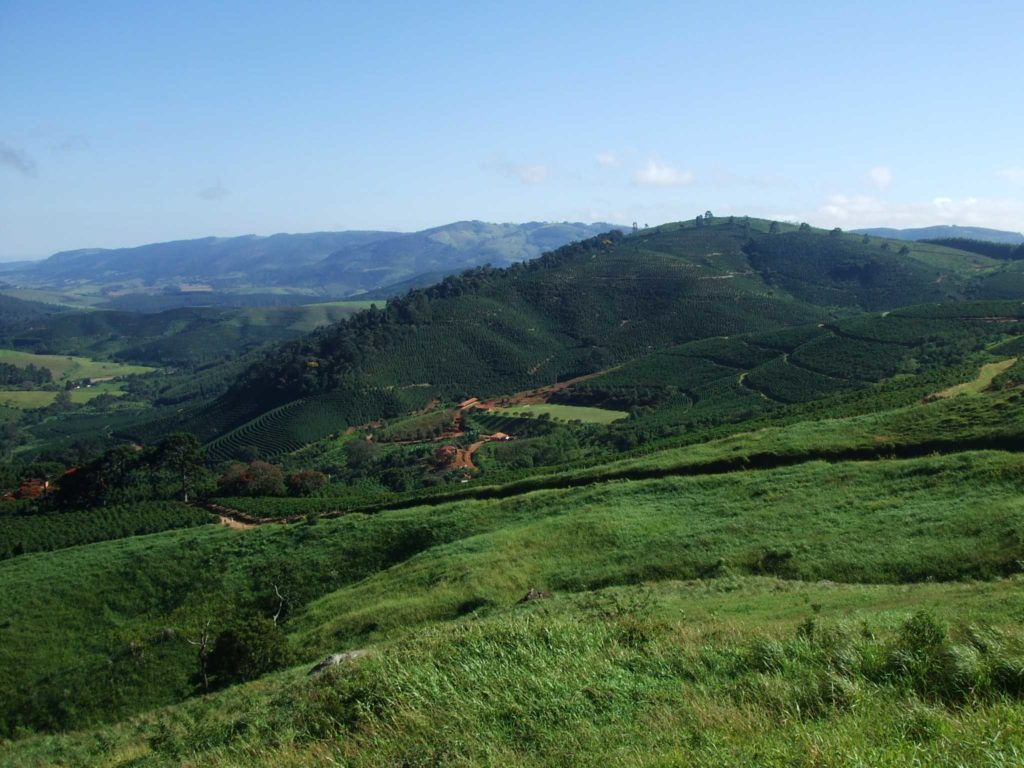
8. Fazenda Progresso
Chapada Diamantina
The Fazenda Progresso was founded in 1984 and has been managed by the Borré family ever since. Originally from southern Brazil, where agriculture focuses on grains, the initial plan was to grow soybeans. The cultivation of soybeans proved to be inappropriate for that site due to the adverse weather conditions. In 2006, Fazenda Progresso began its history with coffee, quickly becoming the spearhead of its region in this crop. The Chapada Diamantina has in fact many favorable characteristics to the production of coffee, such as its high altitude, well-defined seasons, recommended temperature ranges, regular rainfall and the possibility of irrigated agriculture. The cultivated varieties are Catuaí 144 and Topazio.
9 Fazenda Lagoa Seca
Sul de Minas
The Andrade family has been involved in the production of coffee for over a century. Having abandoned this tradition for a while in the 1970s, the third generation of the family, the brothers Ismael and Eduardo Andrade, bought back the family’s coffee plantations in Carmo do Paranaíba, in the Cerrado Mineiro region of Minas Gerais.
The Fazenda Capim Branco in Paranaíba (Cerrado Mineiro) was the first farm of the Andrade brothers. Since then, the family has been very active in setting up new farms to expand their growing area, all aligned with their mission of producing the highest quality coffee. Fazenda Lagoa Seca is one of them. A 111-hectare farm located at 1.105 meters above sea level in the rural district of Carmo do Paranaíba.
For the awards, the recognition of the Andrade brothers’ hard work was first noticed in the 2016 Brazil Naturals Cup of Excellence. Since then, their coffee has been recognized many times among the best lots in the nation, including the 1st place for their farm Fazenda Paraíso, in the Naturals 2018 competition. This very special Fazenda was also ranked 26th in the 2020 Brazil Cup of Excellence Competition. The main grown variety is the Yellow Icatu.
10 Fazenda Monte Alto
Sul de Minas
The history of the farm dates back to 1830, when Francisco Ribeiro do Valle arrived in the region from São João del Rey and took over the Jacuba Farm, which was then transformed to the “Alto farm”. Francisco’s descendants are today in the seventh generation and maintained the tradition of coffee cultivation by carrying on plantations of Bourbon, Catuaí Amarelo, Catuaí Vermelho, Icatu and Mundo Novo. Monte Alto Coffees stand out for their high quality and were awarded in competitions in Brazil, such as the Illy prize, which recently awarded them as the “Best Coffee Plantationg in the South of Minas”. The coffees follow important sustainability standards, being UTZ, 4C and Certifica Minas-certified.
